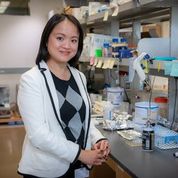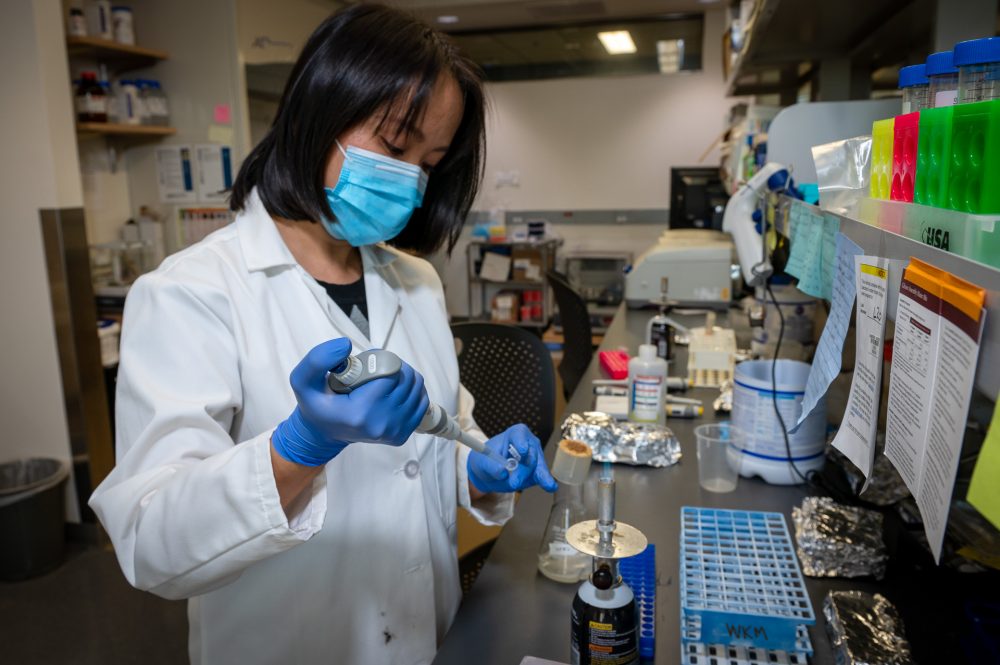Wendy (Wing Ki) Mok, Ph.D., assistant professor in UConn Health’s Department of Molecular Biology and Biophysics, has received the National Institutes of Health (NIH) Director’s New Innovator Award for her research involving bacterial interactions and antibiotic persistence.
The title of Mok’s funded grant is “Mapping Microbial Interactions that Shape Antibiotic Persistence.” This project, she explains, focuses on investigating how the interactions between bacterial species in polymicrobial communities impact the response and susceptibility of Staphylococcus aureus, a human pathogen of serious public health concern, to antibiotics.
“Antibiotic treatment failure is a global public health problem – bacteria can respond to antibiotic treatments and evolve genetic mutations that make them resistant to the drug. Some bacteria in an infection can also respond to signals in their environment and temporarily become more resilient to the antibiotic. These ‘persisters,’” Mok says, “can lead to infection relapse in patients or dangerous resistance to treatment.”
It is estimated that by 2050, more than 10 million deaths worldwide could result each year from antibiotic-insensitive bacterial infections. The grant Mok is receiving funds her research for five years with $1.5 million in direct costs and $960,000 in indirect costs, split into two multi-year segments. Her work involves developing experimental models to examine wound and airway infections, and exploring new technologies and methods for reducing antibiotic treatment failures.

“I envision that we can potentially identify a repertoire of small molecules and microbiome manipulation strategies to enhance the efficacy of our existing arsenal of antimicrobials from this work,” Mok states. “I also believe that the findings from this project will be transformative for the way we study and manage chronic bacterial infections.”
Mok is one of 64 national recipients of this award, established in 2007. The New Innovator Award, supported by the NIH Common Fund, is part of NIH’s High-Risk, High-Reward Research Program, which oversees programs that pursue major opportunities and gaps that are of great importance to NIH and require collaboration across the agency to succeed. Program applicants are encouraged to think “outside the box” and pursue trailblazing ideas in any area of research relevant to the NIH’s mission to advance knowledge and enhance health.
Mok grew up in Toronto, and earned her doctorate in biochemistry at McMaster University. She then completed her post-doctoral work at Princeton University before joining UConn in 2019.
“I’m thrilled to have my work recognized by this prestigious national organization, and grateful for the support that I’ve received at UConn Health,” says Mok. “I have benefitted greatly from talented students and visionary mentors, who have been integral to building my independent research program. This kind of support is critical for us to continue to develop our research program, achieve funding, and train strong students going forward.”



